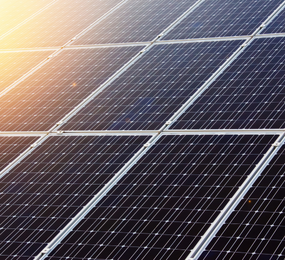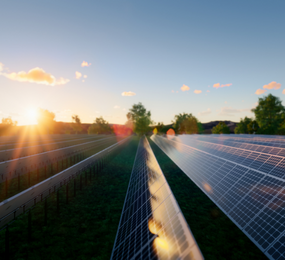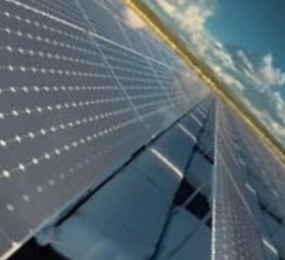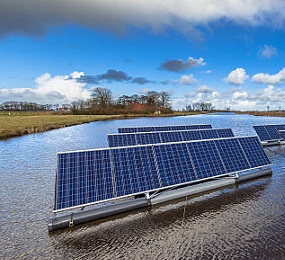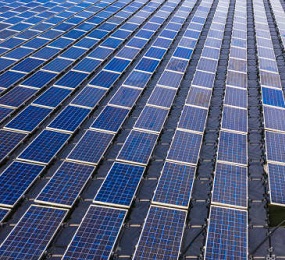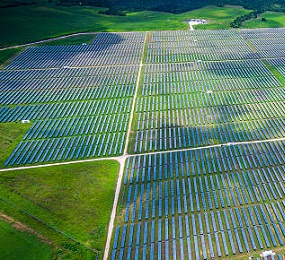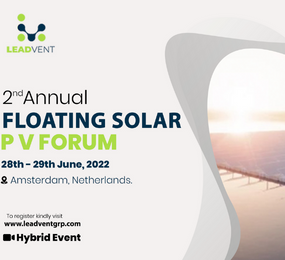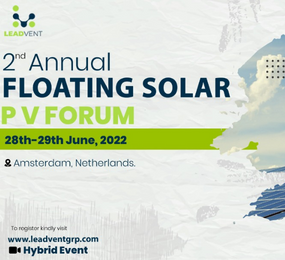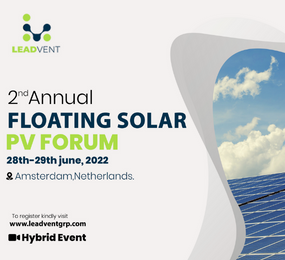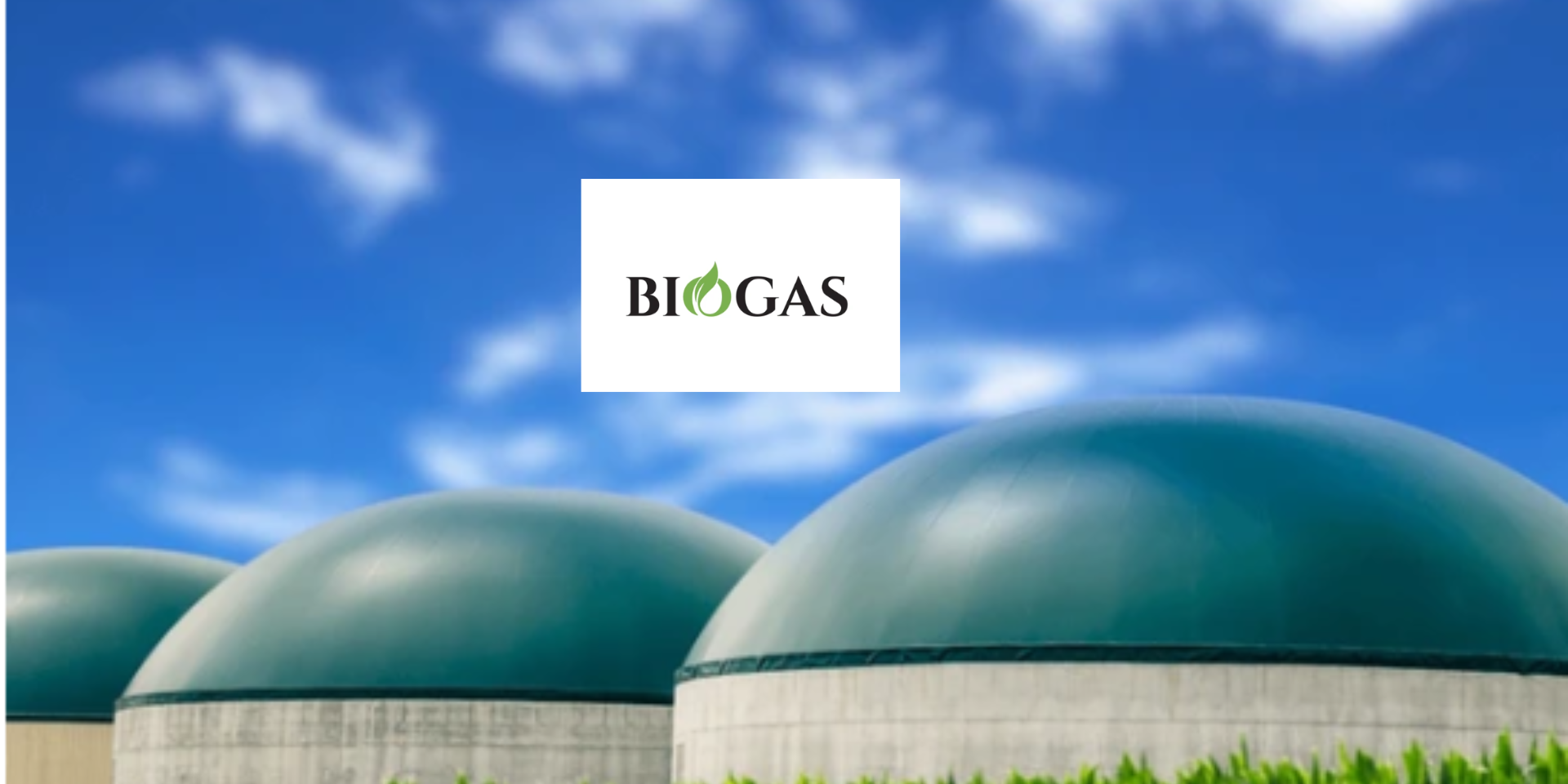At the upcoming 3rd Annual Floating Solar PV Forum in Amsterdam, Netherlands, on 27th - 28th June 2023, a distinguished speaker will address the challenges associated with implementing floating solar photovoltaic (PV) installations in large and complex water bodies. As the demand for renewable energy grows, the exploration of unconventional sites, such as expansive lakes or reservoirs, presents unique obstacles that need to be understood and overcome. This article will delve into the key challenges faced in harnessing the potential of such water bodies for floating solar PV systems.
1. Water Depth and Fluctuations: Large water bodies often exhibit significant depth variations, which pose challenges for the installation and stability of floating solar PV platforms. Maintaining an optimal distance between the panels and the water surface is crucial for maximising energy production. Understanding the water depth patterns, including seasonal fluctuations, tides, or water level changes, is essential for designing appropriate floating structures and anchoring systems that can adapt to varying water depths while ensuring system integrity.
2. Water Quality and Contamination: The quality of water in large water bodies can vary significantly, depending on factors such as pollutants, sediments, and organic matter. These elements can affect the performance and durability of floating solar panels. Addressing potential issues related to water contamination and sedimentation is crucial to maintain optimal efficiency and minimise maintenance requirements. Implementing effective water treatment measures and incorporating self-cleaning mechanisms can help mitigate the impact of water quality on system performance.
3. Wave and Wind Loads: Large water bodies are often exposed to higher wind speeds and wave actions, which can exert considerable forces on floating solar PV installations. Designing floating structures and mooring systems capable of withstanding these dynamic forces is a critical challenge. Innovative engineering solutions, such as wave attenuators, flexible anchoring systems, and resilient floating platforms, need to be explored to ensure the stability and longevity of the installations in challenging wave and wind conditions.
4. Navigation and Water Traffic: Large water bodies are often navigable, accommodating various vessels and watercraft. Balancing the requirements of navigation safety and the installation of floating solar PV systems can be a complex task. Ensuring adequate clearance for water traffic and implementing appropriate safety measures, such as marker buoys or warning signs, are essential to minimise potential conflicts and ensure the safe coexistence of floating solar installations and maritime activities.
5. Environmental and Ecological Considerations: Large water bodies are often home to diverse ecosystems and protected species. The impact of floating solar PV installations on the environment and aquatic life must be carefully assessed and mitigated. Conducting thorough environmental impact assessments, studying the potential effects on water quality, biodiversity, and aquatic habitats, and developing mitigation strategies are crucial steps in ensuring the sustainability and compatibility of floating solar PV systems with the surrounding ecosystems.
6. Grid Connection and Infrastructure: Large water bodies located in remote areas may present challenges in grid connection and infrastructure development. Overcoming logistical and technical hurdles to connect the floating solar installations to the electricity grid is vital for efficient power transmission and distribution. Exploring innovative solutions such as floating substations, subsea cables, or off-grid systems with energy storage capabilities can help overcome these challenges.
Addressing these challenges requires collaboration among industry stakeholders, researchers, and policymakers. The speaker's presentation at the 3rd Annual Floating Solar PV Forum will provide valuable insights and strategies to tackle the specific challenges of implementing floating solar PV installations in large and complex water bodies. By sharing experiences, knowledge, and best practices, attendees will gain a comprehensive understanding of the issues at hand and contribute to the development of effective solutions for harnessing the vast renewable energy potential of these water bodies.
In conclusion, the challenges associated with implementing floating solar PV installations in large and complex water bodies are multifaceted. From addressing water depth fluctuations and ensuring water quality to mitigating the impact on ecosystems and overcoming grid connection hurdles, careful planning, innovation, and collaboration are essential. The presentation at the forum will shed light on these challenges and provide guidance for industry professionals, researchers, and policymakers to navigate the complexities and unlock the immense potential of floating solar PV systems in large water bodies.
To register or learn more about the Forum please check here: https://bit.ly/3zVvdfN.
For more information and group participation, contact us: [email protected]


